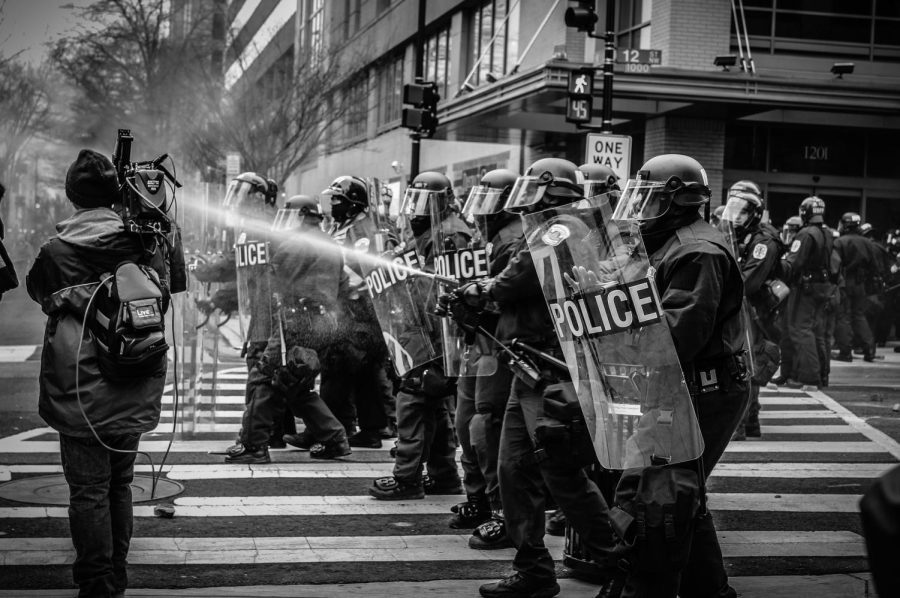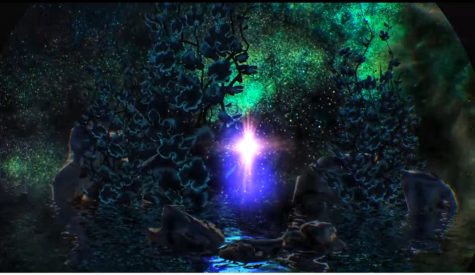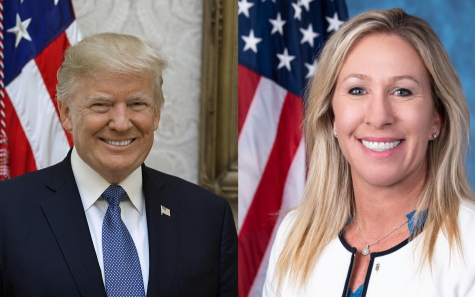BEYOND | Reinventing Policing on the UIS Campus
During the pandemic, public safety received much attention due to the police murder of George Floyd in Minneapolis in 2020, as people protested in the streets calling for racial justice in the criminal justice system.
A committee on campus is tasked with preparing a recommendation for the next UIS Chief of Police, in light of the demands for equity and social justice on campus and beyond.
Institutions across the country pledged their support for Black Lives Matter by pledging Even prior to the pandemic, students have stood in support of the Black Lives Matter movement, demanding for police accountability and racial justice in the wake of the police murder of Eric Garner, Michael Brown, Sandra Bland and Laquan McDonald.
The search committee is made of student, staff and faculty representatives and involves members reviewing resumes, checking references and conducting interviews. The final four candidates were presented through open forums for community members to take a part in this fall.
Check out the candidate’s resumes and cover letters here.
One of the two student representatives is Hasani Cannon, a sculptor, and senior in Visual Arts. He said the relationship between students and the campus police is “pretty positive.”
“There isn’t necessarily a big rift between police and students,” he said.
“A lot of students come from Chicago and there is a historical distrust of police,” Cannon said. “There is an uphill battle with building trust with the student population.”
Countless stories from Chicago are reported of police misconduct. Illinois also has the second highest number of wrongful convictions with police coercing false confessions being a factor, according to The National Registry of Exonerations from the University of Michigan Law School.
Chicago ranks as one of the major cities in the country with the highest police killings per population. Just on March 29, of 2021, Chicago Police killed 13-year-old Adam Toledo.
Overall, Canon said he has not heard of any bad interactions between students and police on campus. He said the approach to policing on a college campus is very different compared to regular policing. While traditional policing is about controlling the environment, on campus policing is more about community-building, he said.
“It shouldn’t be about arresting people or trying to control the campus,” he said. “It’s about providing resources, conflict management and being there when the campus needs you.”
Associate Professor and the Interim Director for the School of Public Management and Policy Tyrone Dooley is the faculty representative on the committee. Dooley’s research focus includes policing, social justice and administrative rules. He said he brings a critical race and social justice lens to the proceedings.
Dooley, said critical race theory is the assumption or premise that “our society is founded on racist principles and that we are still dealing with those artifacts today, in particular tied to policing and housing.”
With a critical race theory lens, he said, “we need to be sure that institutions that have a social justice mindset recognize those disparities and eliminate those disparities.”
“From that perspective, we want to make sure that a police chief for our campus will be cognizant of the disparities that exist in policing in our country. Also we want a chief committed to community policing.” Dooley said.
He said the uprising and national attention to police crimes spurred by the murder of George Floyd is “always the elephant in the room” during committee meetings. But he said the demands to end police violence are not new, with calls for justice stemming back from the ‘70s and ‘80s, the civil rights movement and earlier.
“We do have an opportunity now in this environment to really get it right, to have strong solid leadership that has a social justice, a community policing focus.”
The committee’s community representative is Ed Wojcicki, a spokesperson and executive director of the Illinois Association of Chiefs of Police. The organization has actively opposed House Bill 3653, which became the Safety, Accountability, Fairness and Equity-Today Act, i.e. the SAFE-T Act. The law, sponsored by the General Assembly’s Black Caucus, was spurred by calls to end police violence and for reform in the criminal justice system.
The association now seeks to chip away at provisions of the law. SAFE-T Act aims to scale down some police powers and increase accountability of law enforcement.
The UIS interim chief of police, Ross Owens, is a member of this organization, according to his resume. However, Dooley said it is expected that police chiefs will have an affiliation with their respective professional association. He said Wojcicki’s participation “has been a positive one” with his knowledge on particular police training and procedures.
During the candidate open forums, Rexann Whorton, the Women’s Center Program Director, asked each candidates the following:
“What is your experience with trauma informed policing, in particular with victims of sexual assault? And how would you respond and hold accountable if they expressed victim blaming sentiments or if you found out that they used that kind of language?”
Candidates made clear their understanding that the law required trauma-informed police training, but level of support varied. Commitment to continue the community policing already practiced on campus was affirmed by all the candidates.
The Director of Diversity and Inclusion, Justin Rose, inquired about paths to bring underrepresented people into the department. The candidates acknowledged that police recruiting was an issue, but differed on how to attract people of color to the profession. According to the interim chief, there are 14 police officers in the department, with 5% representing diversity. Whether that means the department is all white has not been confirmed.
The committee is expected to make their recommendation for the next UIS Police Chief prior to Thanksgiving, according to search chair Charles Schrage. The final decision will be made by Interim Chancellor Karen Whitney, according to several members of the search committee.










